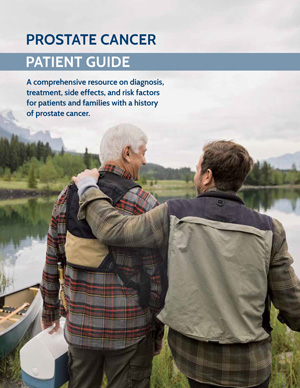The following information was obtained from several sources including University of British Columbia, The Vancouver Sun and others.
John Oliffe, head of Men’s Health Research and a professor in the School of Nursing has developed a new interactive website called “If I Were Tom” (ifiweretom.ubc.ca)
This website has been five years in the making. The idea started in 2012, when researchers surveyed health specialists and patients to find out what they most want to discuss when dealing with prostate cancer. Another two years of video interviews followed, using a $400,000.00 grant from the Canadian Institutes of Health Research. There are 30 videos on the website, with more ready to be swapped in order to keep everything fresh.
The website is interactive, so the viewer can predict what Tom (actor Gary Johnston plays the role) will do at each step along the way from diagnosis to recovery. “Will I have to wear these stupid underpants that make you look like you’re walking around with a load in your pants?” Tom asks himself when worrying about potential side effects of surgery.
“We’ve found with guys that if a character resonates with them they’re drawn into the content in a more interactive way. You look at the video and put in what you would do next. You might be plotting what Tom’s doing, but chances are you’re plotting what you did or think you’d do,” said Oliffe.
Like a support group session, but on line. There is already a mountain of information available about prostate cancer, concedes Oliffe, and the website isn’t trying to duplicate that. Instead, each topic area includes a video from specialists including urologist, oncologist and psychologist and also includes men with prostate cancer talking about their real experiences. It also includes no-holds-barred discussion on sexual problems and hormonal changes.
We’re really trying to create a resource that was similar for all those guys who don’t want to go to a group because of privacy issues or who can’t get there because of transportation or work commitments etc.
You can’t have too much information. There are different types of prostate cancer – slow growing or aggressive – there are various treatment options to treat prostate cancer including surgery to remove the prostate gland surgically.
Another option may be radiation therapy, anti-hormone treatment known as androgen deprivation therapy or doing something referred to as active-surveillance (where you and your PSA etc. are watched very closely and if and when things change then treatment options are offered). Age and other health problems will also play into each man’s choice of treatment.
“They might be disappointed with the outcome, but if you go in knowing the potential side effects and having thoughtfully considered those, taking time rather than being rushed…you’re less likely to make a decision quickly about a treatment you might regret.”
Research continues. Oliffe’s team is collecting more data through the website with surveys. I believe at the present time they are asking about a persons exercise regime.



